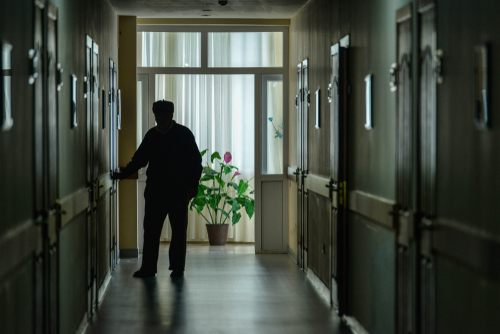
Post-Acute Care Facilities In Riverside: Services And Options Available
28 Apr, 2025
Senior Care
After a hospital stay, especially following surgery, injury, or a serious illness, many patients are not quite ready to return home. This is where post-acute care facilities step in. These specialized facilities provide patients with the medical care and rehabilitation services they need to recover fully and safely. In Riverside, California, post-acute care plays a significant role in the continuum of healthcare, offering a wide array of services to support recovery, restore function, and prevent hospital readmissions.
This article provides a comprehensive overview of post-acute care facilities in Riverside, highlighting the services offered, types of facilities available, and how families can choose the right option for their loved ones.
What Is Post-Acute Care?
Post-acute care (PAC) refers to a range of medical and supportive services provided to individuals who have been discharged from a hospital but still require continued care before returning to their everyday lives. The goal is to promote recovery, enhance mobility, manage symptoms, and reduce the risk of complications or readmissions.
These services are often required for individuals recovering from:
-
Stroke
-
Joint replacement surgery
-
Cardiac events
-
Respiratory illnesses
-
Major infections
-
Complex wound care needs
-
Neurological conditions
-
Serious falls or fractures
Types of Post-Acute Care Facilities in Riverside
Riverside offers several types of post-acute care settings tailored to meet different levels of medical and personal care needs. These include:
1. Skilled Nursing Facilities (SNFs)
These are the most common post-acute care facilities. They offer 24/7 medical care and rehabilitation services, including physical, occupational, and speech therapy. Skilled nursing facilities in Riverside are typically staffed by registered nurses, licensed vocational nurses (LVNs), therapists, and other healthcare professionals.
Key services include:
-
Medication management
-
Post-surgical wound care
-
IV therapy
-
Rehabilitation services
-
Nutrition and dietary planning
-
Pain management
2. Inpatient Rehabilitation Facilities (IRFs)
These are designed for patients who require intensive rehabilitation following a major event like a stroke or traumatic injury. Patients in IRFs typically participate in several hours of therapy each day and receive close medical supervision.
Riverside IRF services may include:
-
Intensive physical therapy
-
Neurological and cognitive rehabilitation
-
Occupational therapy for daily living activities
-
Psychosocial support and mental health services
3. Long-Term Acute Care Hospitals (LTACHs)
LTACHs are specialized hospitals that care for patients with serious, ongoing medical conditions that require extended hospital stays—often longer than 25 days. These facilities focus on ventilator weaning, complex wound care, and multi-organ system failure management.
Services typically include:
-
Respiratory therapy
-
Complex medical management
-
Specialized nursing care
-
Daily physician visits
4. Home Health Care and Outpatient Services
Some patients may transition from the hospital or another post-acute facility to receiving care at home. Home health services in Riverside include nursing visits, physical therapy, occupational therapy, and home-based rehab.
Benefits include:
-
Greater independence
-
Family involvement in care
-
Reduced exposure to hospital-acquired infections
Common Therapies and Services Offered in Riverside Post-Acute Care
Post-acute care facilities provide a blend of clinical services and rehabilitation therapies aimed at full recovery. Common offerings include:
-
Physical therapy to improve strength, mobility, and balance
-
Occupational therapy to help patients relearn daily tasks like dressing and bathing
-
Speech-language therapy to support communication and swallowing
-
Pain management and palliative care when needed
-
Nutritional counseling and meal planning
-
24/7 skilled nursing care
-
Social services and discharge planning
Some facilities also offer recreational and social activities, mental health counseling, and wellness programs to support emotional and psychological recovery.
How to Choose the Right Post-Acute Care Facility in Riverside
Selecting a post-acute care facility involves careful consideration of the patient’s medical needs, personal preferences, and insurance coverage. Here are important factors to keep in mind:
-
Accreditation and Licensing: Ensure the facility is licensed by the state and accredited by reputable healthcare organizations.
-
Staff Qualifications: Ask about the experience and availability of medical professionals, therapists, and caregivers.
-
Services Offered: Verify that the facility offers the specific services your loved one needs.
-
Reputation and Reviews: Research online reviews and ask for recommendations from healthcare providers or family members.
-
Location: Choose a facility close to home to allow family visits and easier coordination of care.
-
Discharge Planning: A good facility will have a clear plan for transitioning the patient to home or another level of care.
Insurance and Payment Options
Post-acute care in Riverside may be covered by Medicare, Medicaid, private insurance, or long-term care insurance, depending on the facility and services required. Medicare typically covers short-term skilled nursing care if certain conditions are met, such as a qualifying hospital stay of at least three days.
It’s essential to check with each facility regarding:
-
Accepted insurance plans
-
Out-of-pocket costs
-
Payment plans and financial counseling services
Some facilities also work with veterans’ benefits or offer assistance in applying for Medi-Cal (California’s Medicaid program) to help offset long-term care costs.
Post-Acute Care in Riverside: A Community-Based Approach
Riverside’s healthcare network is known for its integrated approach to care. Many post-acute care facilities work closely with local hospitals, assisted living centers, and primary care providers to ensure smooth transitions and coordinated care. This collaborative environment enhances recovery outcomes and supports both patients and families during the healing process.
Conclusion: Supporting Recovery Every Step of the Way
Post-acute care facilities in Riverside provide a critical bridge between hospital care and home. Whether a patient needs a short stint of physical therapy or more intensive long-term support, Riverside’s healthcare infrastructure offers a variety of options to meet those needs. Families can rest assured knowing that their loved ones will receive personalized, professional care designed to promote recovery, independence, and quality of life.
If you’re considering post-acute care for yourself or a loved one, explore the many options available in Riverside to find the facility that best fits your needs—and take the next step toward a healthier, more independent future.
Leave a Comment